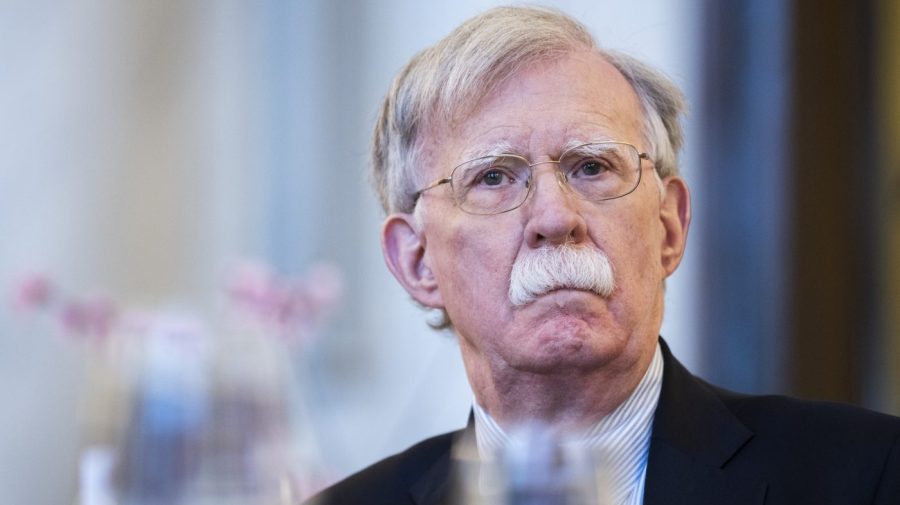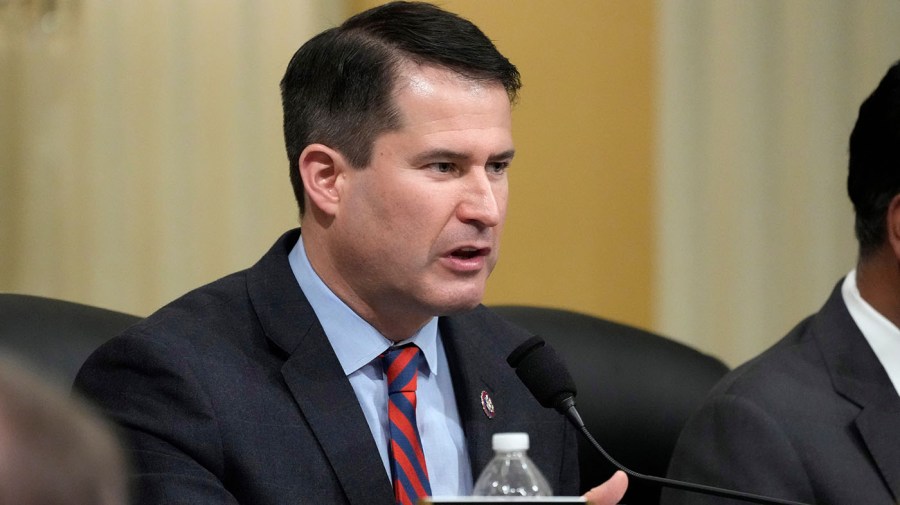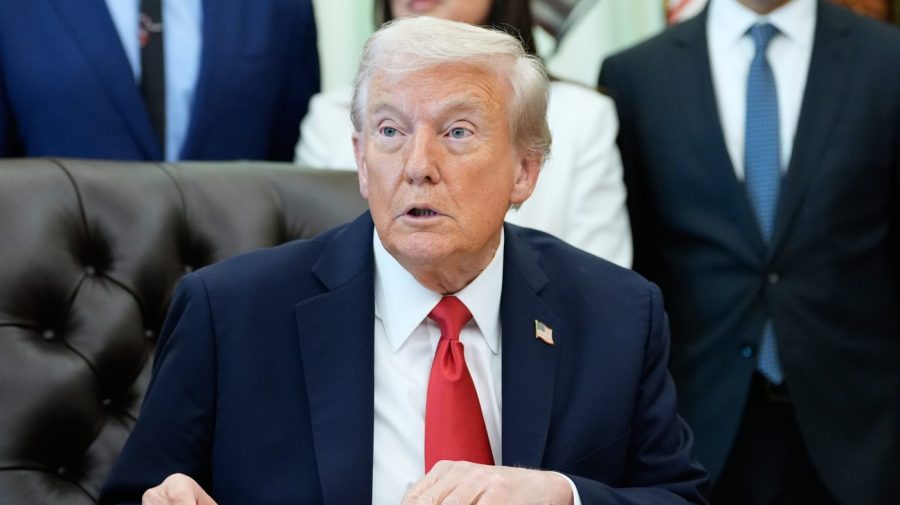John Bolton, a former national security adviser to President Trump who is now counted among his foes, was indicted Thursday over allegations he shared and stored classified information.
Federal prosecutors say that Bolton sent more than a thousand pages of “diary-like entries” to two relatives and retained documents, writings and notes related to national defense.
The 26-page indictment was handed up by a grand jury Thursday afternoon at the federal courthouse in Greenbelt, Md.
In a statement after the charges were filed, Bolton claimed to be a target of Trump’s retribution campaign against his perceived political enemies.
Here are five takeaways:
Bolton’s 18 charges head to Obama-appointed judge
Bolton faces 18 total charges: eight counts of transmitting national defense information and 10 counts of retaining national defense information.
Each count carries a maximum penalty of 10 years in prison, although Bolton is a first-time offender who would likely face a lesser punishment if convicted.
It would be up to U.S. District Judge Theodore Chuang, an appointee of former President Obama who was randomly assigned, to oversee the trial proceedings.
Chuang has overseen several legal challenges to major pieces of Trump’s second-term agenda.
Chuang in February sided with a group of Quaker, Baptist and Sikh organizations in their challenge to the administration’s immigration enforcement efforts at places of worship.
This spring, Chuang ruled that Elon Musk was likely unlawfully dismantling federal aid programs as he spearheaded the Department of Government Efficiency (DOGE). The ruling sparked an impeachment call from Rep. Andy Ogles (R-Tenn.)
But in July, he denied a group’s effort to block the Trump administration from revoking temporary legal status given to thousands of nationals from Afghanistan and Cameroon. Chuang also declined to immediately dismiss the lawsuit, and it remains pending.
Diary entries at the heart of case
The case against Bolton centers on hundreds of pages of “diary-like” dispatches he sent to two relatives about his day-to-day activities as national security adviser.
Prosecutors say he “abused his position” by sharing information classified as top secret related to national defense, in addition to retaining documents, writings and notes in his home that also included top-secret details.
The two relatives never held U.S. security clearances and were not authorized to see the information Bolton shared with them via commercial messaging apps and personal email accounts, the indictment says.
“At no point did Bolton have authorization to store or transmit the classified information that he sent to Individuals 1 and 2 via his personal electronic devices and accounts,” the charging papers read. “Nor did, at any time, individuals 1 and 2 have authorization to know or store the classified information that Bolton gave to them.”
Prosecutors also allege that Bolton, at some point before the FBI’s August raid on his home, printed and stored “many” of the entries. He also allegedly stored several entries on personal electronic devices.
The indictment says that Bolton was told in September 2019, after he left the Trump administration, that he could no longer store classified information at his home.
In July 2021, a representative for Bolton notified the FBI that one of his personal accounts was believed to have been hacked by Iran. However, the representative did not alert the FBI that the hacked account stored classified and national defense information that Bolton had allegedly retained, to which the apparent hacker gained access, the indictment says.
How the grand jury emerged
The grand jury met Thursday afternoon behind closed doors in the Maryland courthouse. The building was otherwise quiet, except for a sentencing hearing happening down the hall.
Just after 3:30 p.m. ET, the grand jurors had finished their work and were seen exiting.
As most left, the foreperson stayed behind. Moments later, she joined prosecutors in going up a floor to the on-duty magistrate judge’s courtroom.
They entered and waited a few minutes for the judge to arrive. The foreperson sat at the defense table, while five prosecutors filled the prosecution table to the brim.
U.S. Magistrate Judge Gina Simms took the bench, and the foreperson was asked to confirm they had indeed voted to return the indictment in hand.
“Yes,” responded the foreperson, a middle-aged Black woman who wore tortoiseshell glasses.
Federal rules require the grand jury to comprise 16 to 23 members, and 12 had to agree there was probable cause to bring charges.
The foreperson walked to the front of the room and handed up the document, held together with a binder clip. The judge wished her a good afternoon, dismissed her, and turned to the prosecutors.
Thomas Sullivan, the case’s lead prosecutor, handed up a red folder containing documents to the judge. He did not indicate what they were, and the judge silently reviewed them.
Afterwards, the judge adjourned. The proceedings lasted just five minutes.
As Sullivan exited the courthouse, he declined to comment to reporters, only saying, “Stay posted.”
Bolton: ‘I have become the latest target’
After the charges were announced, Bolton said in a statement that he sees himself as the “latest target” of Trump’s retribution campaign against his perceived political enemies.
His indictment marked the third of Trump’s longtime foes to be charged by the Justice Department in recent weeks.
Bolton said that he has devoted his life to America’s foreign policy and national security and would “never compromise those goals,” contending that he resigned from Trump’s first administration when it became “impossible” to do so at the time.
That’s when Trump’s retribution against him began, the former national security adviser claimed, and it continued as he sought to publish his memoir “The Room Where It Happened,” over which the administration spent years feuding with him.
“Now, I have become the latest target in weaponizing the Justice Department to charge those he deems to be his enemies with charges that were declined before or distort the facts,” Bolton said.
Bolton said Trump’s second administration embodies the tactics of Soviet Union dictator Joseph Stalin’s secret police: “You show me the man, and I’ll show you the crime.”
The charges are an extension of Trump’s efforts to intimidate his opponents into keeping quiet about his conduct, he said.
“Dissent and disagreement are foundational to America’s constitutional system, and vitally important to our freedom,” Bolton said. “I look forward to the fight to defend my lawful conduct and to expose his abuse of power.”
Bolton’s lawyer, Abbe Lowell, said in a statement after the charges were filed that the underlying facts in the case were investigated and resolved “years ago,” adding that keeping diaries, as many public officials throughout history have, is “not a crime.”
A long-time Washington attorney, Lowell is also representing New York Attorney General Letitia James in her federal criminal case and Federal Reserve board of governors member Lisa Cook in her legal challenge to Trump’s effort to fire her.
Retribution campaign or not?
Although Bolton is the latest Trump critic to face charges, his case bears notable differences from those against other opponents of the president.
Former FBI Director James Comey was the first Trump foe to be indicted, charged by a federal prosecutor in Virginia for allegedly making false statements during 2020 congressional testimony. He pleaded not guilty and has vowed to raise claims of vindictive prosecution.
New York Attorney General Letitia James was indicted in the same courthouse last week over accusations of bank fraud tied to a property she bought in Norfolk, Va. She will make her first court appearance next week and has denied wrongdoing.
Both Comey and James were indicted by Lindsey Halligan, Trump’s former personal attorney, who he recently picked to become interim U.S. attorney in the Eastern District of Virginia.
Halligan was tapped for the role after Erik Siebert, the district’s former U.S. attorney, resigned amid pressure to indict Comey after determining there was not enough evidence to do so.
Comey plans to challenge the validity of Halligan’s appointment, and while James has not signaled whether she intends to take a similar approach, she accused Halligan in a statement after her indictment of being someone who is “blindly loyal not to the law, but to the president.”
However, a similar claim could not be made in Bolton’s case. He was indicted in Greenbelt, Md., where prosecutors are led by U.S. Attorney Kelly Hayes, who is in the role permanently.
Also, the case against Bolton was presented to a grand jury by Thomas Sullivan, chief of the Maryland office’s national security section. Four prosecutors joined him before a magistrate judge Thursday when the indictment was handed up.
In Comey and James’s cases, Halligan sought their indictments on her own, prosecutors from outside her Virginia district have since joined the case against Comey.














